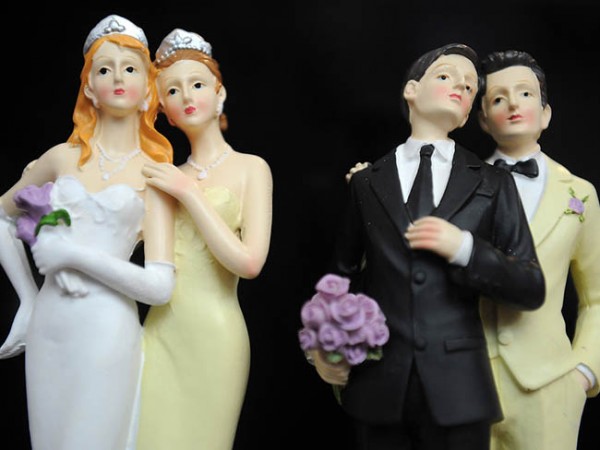
Should heteronormative assumptions be called out, even if the speaker is a passionate supporter of LGBTQIA* rights? Photo: File.
Call-out culture is a phrase that seems to twig the ears of every far-left and far-right keyboard warrior out there (I can almost see you flexing your knuckles and getting ready to dive into the comment section from here), but at its core, the concept is not a bad one.
Before it became synonymous with snowflakes and self-proclaimed victims everywhere, the notion that we should actively and regularly call out people for their prejudice – be it racist, ableist, transphobic, homophobic or sexist – is a good one. Of course, people should be held to account for their views, when they’re linked to systems of inequality.
If someone says something or behaves in a prejudiced way, they should absolutely be called out for it and advised of the potential consequences of their views and actions. I can also accept how this extends to the use of language that is in our common vocabulary, but that is grounded in prejudice that was the norm in the past.
Daily Digest
For example, it is no longer appropriate to use the word ‘gay’ as an insult. I grew up with things being labelled ‘so gay’ as a synonym for ‘pathetic or uncool’. Now, thanks to a continuous conversation on LGBTQIA* rights, most of us accept that the term ‘gay’ should not be used in a derogatory way. The same can be said of ableist slurs like ‘retard’ (once the catch cry of schoolyard insults), and many other terms that once were used widely and now are recognised as being insulting and inappropriate.
Some would call this “political correctness gone mad”. I would say that progressing our collective vocabulary to be more inclusive and conscious of discrimination and inequality is a good thing – even if it takes individuals some time to get used to it.
I think that awareness and change happen in phases, and the same methods won’t work forever. Where call-out culture has played an essential role in building awareness of the normalisation of prejudice in society, it now borders on undoing its own gains by becoming so ubiquitous as to be irrelevant.
The missing factor, in my opinion, is context.
For example, if someone is a progressive person who you know isn’t homophobic, and they’ve demonstrated their support for LGBTQIA rights, and you witness them accidentally reverting to heteronormative assumptions (for example, asking a man they’ve just met about their wife, without considering that they may be gay), is it necessary to call this out expressly and tell them that they’re being heteronormative? Or could you just say, “I’m gay, actually, and my boyfriend is well”, without making a bigger deal out of it?
Or, as happened to me recently, if you know that someone is an out and proud feminist who has spent almost their entire working career in the women’s sector, writing feminist content and advocating for gender equality, should you call them out for using gendered language (in this case, using the term ‘guys’ as a gender-neutral term for a group, which can be seen to be not inclusive of women and non-binary people)?
Or should you assume that they have no intention of excluding anyone based on gender and that they’ve demonstrated this in action, to the point where you can be confident that their use of a term isn’t intended to be prejudiced?
I have no problem with being called out and am more than happy to remove the term ‘guys’ from my vocabulary (though it’s proving difficult to train my brain to drop it). I accept that there is always more to learn and that we can all continuously improve our understanding of equality to build a more inclusive society.
But I did pause to wonder if this degree of call-out culture is perhaps going to be the undoing of its efficacy. People already feel that everyone is too sensitive about political correctness. Once the politically correct start policing their own, and context or past behaviour is wiped out by a single error, surely it’s opening up the movement to ridicule and irrelevance.
I have no doubt that there will never be an end to the need to actively call out and address prejudice when it occurs – but are we getting too bogged down in the detail, and making perfect the enemy of good? Is there still a role for call-out culture to play, or do we need to change the dynamic to stay effective?


















